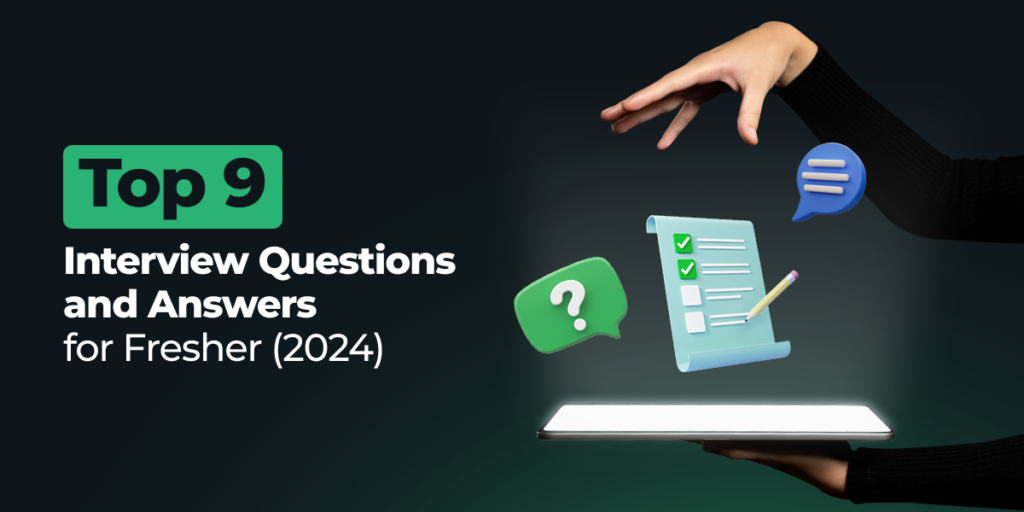How to Prepare for a Java Developer Interview
Java remains one of the most in-demand programming languages in the tech industry, making Java Developer roles highly competitive. Whether you’re a fresh graduate or an experienced professional looking to switch jobs, preparing effectively for a Java Developer interview is crucial.
This guide will walk you through a structured approach to help you prepare thoroughly, covering everything from core concepts to coding exercises, real-world scenarios, and behavioral questions.
Step 1: Understand the Basics of Java
Before diving into complex topics, ensure you have a solid grasp of Java fundamentals. Hiring managers often start with basic questions to gauge your foundation.
Key Topics to Cover:
- OOP Principles – Understand concepts like encapsulation, inheritance, polymorphism, and abstraction with real-world examples.
- Data Types and Variables – Know primitive and non-primitive data types.
- Control Statements – Learn about loops (for, while, do-while), conditionals (if-else, switch-case), and exception handling.
- Collections Framework – Understand Lists, Sets, Maps, and Queues.
- String Manipulation – Learn how to work with
String,StringBuffer, andStringBuilder. - Multi-threading – Know the difference between extending
Threadand implementingRunnable. - Java Memory Management – Understand stack vs. heap, garbage collection, and memory leaks.
Example Question:
What is the difference between an ArrayList and a LinkedList?
👉 Tip: Always explain using practical examples instead of just theoretical definitions.
Step 2: Master Core Java and Advanced Concepts
Once you are confident with the basics, move on to advanced Java concepts that often appear in technical interviews.
Key Topics:
- Java 8 Features – Functional interfaces, lambda expressions, Streams API, and Optional class.
- Concurrency – Learn about Executors, Future, and CompletableFuture.
- Design Patterns – Singleton, Factory, Observer, and Strategy patterns.
- JVM Internals – Class loaders, Just-In-Time compiler, and performance tuning.
- Microservices & Spring Boot – Understand REST APIs, Dependency Injection, and Spring Boot framework basics.
- Database Connectivity (JDBC, Hibernate) – Know how to interact with databases using Java.
Example Code Snippet:
1
2
3
4
5
6
7
8
9
10
11
12
13
import java.util.stream.Collectors;
import java.util.Arrays;
import java.util.List;
public class Java8Example {
public static void main(String[] args) {
List<Integer> numbers = Arrays.asList(1, 2, 3, 4, 5);
List<Integer> squares = numbers.stream().map(n -> n * n).collect(Collectors.toList());
System.out.println(squares);
}
}
Step 3: Solve Data Structures and Algorithms (DSA) Problems
Most Java interviews involve coding challenges that test your problem-solving skills. Focus on key DSA topics:
Must-Know Data Structures:
- Arrays and Strings
- Linked Lists
- Stacks and Queues
- Trees and Graphs
- HashMaps and HashSets
- Heaps and Priority Queues
Common Algorithm Topics:
- Sorting (QuickSort, MergeSort, Bubble Sort)
- Searching (Binary Search, BFS, DFS)
- Recursion and Dynamic Programming
- Greedy Algorithms
- Sliding Window and Two Pointers
Example Question:
Reverse a Linked List in Java.
1
2
3
4
5
6
7
8
9
10
class ListNode {
int val;
ListNode next;
ListNode(int x) {
val = x;
}
}
1
2
3
4
5
6
7
8
9
10
11
12
13
14
15
16
public class ReverseLinkedList {
public ListNode reverseList(ListNode head) {
ListNode prev = null;
ListNode current = head;
while (current != null) {
ListNode nextTemp = current.next;
current.next = prev;
prev = current;
current = nextTemp;
}
return prev;
}
}
👉 Tip: Practice at least 5-10 problems per topic on platforms like LeetCode, CodeChef, or GeeksforGeeks.
Step 4: Work on System Design and Real-World Scenarios
If you’re applying for a mid-to-senior-level Java Developer role, expect system design questions.
Topics to Cover:
- High-level system architecture
- API design and RESTful principles
- Load balancing and caching techniques
- SQL vs. NoSQL databases
- Microservices vs. Monolithic architecture
👉 Tip: Read case studies on how companies like Netflix and Uber design scalable systems.
Step 5: Practice Mock Interviews and Behavioral Questions
Common Behavioral Questions:
- Tell me about yourself.
- Describe a challenging project you worked on.
- How do you handle bugs and production issues?
- Have you worked in an Agile environment?
- What’s the biggest coding mistake you’ve made, and how did you fix it?
👉 Tip: Use the STAR (Situation, Task, Action, Result) method to answer.
Step 6: Final Preparation – Build a Portfolio and Resume
- Create a GitHub Repository – Upload personal projects and contributions.
- Contribute to Open Source – Gain real-world experience by collaborating.
- Update Your Resume – Highlight relevant skills and projects.
- Prepare for HR Rounds – Research the company and its culture.
Conclusion
Cracking a Java Developer interview requires a structured approach and consistent practice. Focus on mastering the fundamentals, solving coding problems, understanding system design, and preparing for behavioral questions.
Key Takeaways:
- Start with Java basics, then move to advanced topics.
- Practice coding questions daily on LeetCode and CodeChef.
- Understand real-world applications of Java.
- Prepare for system design interviews if applying for senior roles.
- Brush up on behavioral questions to make a strong impression.
Follow these steps, stay consistent, and you’ll be well on your way to landing your dream Java Developer job!
Happy coding! 🚀
Frequently Asked Questions (FAQs)
1. How long does it take to prepare for a Java Developer interview?
Preparation time varies based on experience. Freshers may need 2-3 months, while experienced developers might require 4-6 weeks of focused revision and practice.
2. What are the best resources for Java interview preparation?
Recommended resources include LeetCode, GeeksforGeeks, CodeChef, JavaBrains, Effective Java by Joshua Bloch, and Spring in Action.
3. How important is system design for Java interviews?
System design is crucial for mid-to-senior-level roles. Understanding architectural patterns, scalability, and micro services can significantly improve your chances.
4. Do companies prefer Java certifications like OCA/OCP?
Certifications are helpful but not mandatory. Practical experience, projects, and strong problem-solving skills carry more weight in interviews.
